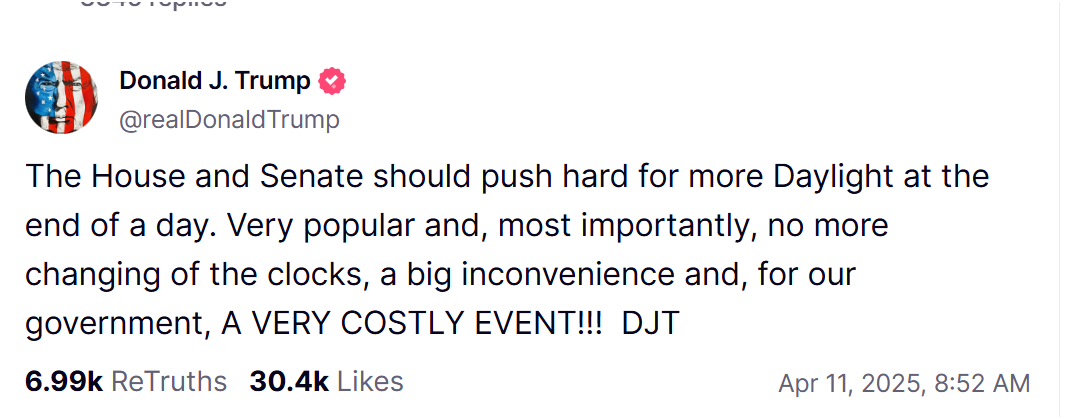In 1957, rockabilly singer Bob Ehret sang, “We’ve got to stop the clock, baby; to spend more time with you”—and during a Senate Commerce Committee hearing, lawmakers from both parties gave serious thought to doing just that, in a sense. Committee Chairman Ted Cruz (R-Texas) acknowledged that Daylight Savings Time was originally introduced as a good-faith effort to reduce energy use. However, he noted it has instead been linked to a rise in car accidents during dark morning hours, workplace disruptions, and pushback from the agriculture industry, which depends on early-morning sunlight.
“We find ourselves adjusting our clocks… springing forward and falling back in the fall. For many Americans, this biannual ritual is a minor inconvenience… But when we take a closer look at the implications of changing the clocks, its impact on our economy, our health and our everyday lives, we can see that this practice is more than an annoyance,” Cruz said. “The idea was simple. Fewer hours of darkness meant less electricity consumption for lighting and heating.”
However, Cruz noted that unlike the early 1900s—when the U.S. economy was more dependent on energy consumption linked to daylight hours—today’s impact from sunrise and sunset timing is “de minimis.” Cruz, along with Dr. Karin Johnson, a neurology specialist from Massachusetts, discussed the health risks tied to the twice-yearly time changes and the potential consequences of making DST permanent compared to sticking with Standard Time.

“Research has shown that the abrupt shift in time, especially the spring transition when we lose an hour of sleep,” Cruz said, as Johnson spoke about the effects on people’s circadian rhythm, vascular system and sleep deprivation. The panel featured an official from the National Golf Course Owners Association, who, along with other lawmakers, discussed the increased revenue from evening tee times and other tourist activities that can only occur during daylight hours.
According to Fox News, on the Democratic side, Sen. Lisa Blunt-Rochester of Delaware agreed that it was time to consider a “permanent time for our country.” She added that a bill from then-Sen. Marco Rubio, R-Fla., to abolish DST stalled in the House. “This body [then] took a harder look at how time changes work state-by-state,” she said. “What works in my home state of Delaware may not work in Washington state, but I know I speak for many Americans when I say it’s time. It’s time to figure this out.”
